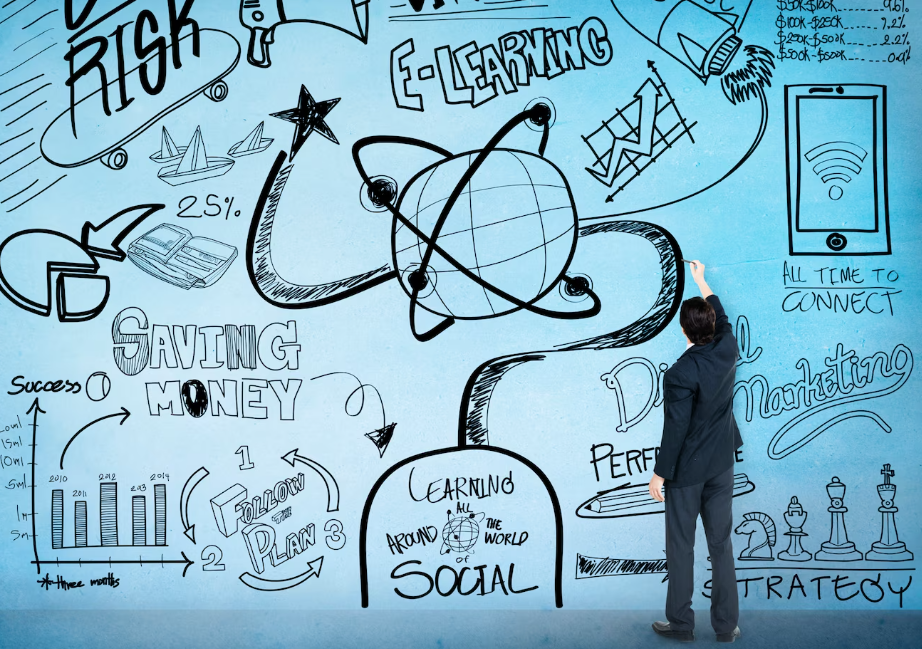Introduction
Yesterday we wrote about the latest advancements in the Artificial Intelligence world. The articles were about Microsoft’s 365 Copilot, Google’s Workspace, and Stanford’s Alpaca.

As these platforms have been using speed to their advantage, we can’t wait but wonder how will all this affect our businesses. Will the businesses suffer?
In today’s rapidly evolving tech landscape, there’s one breakthrough that’s consistently making headlines and turning heads: Artificial Intelligence. As industry giants like Microsoft and Google, as well as innovative projects like Stanford’s Alpaca, push the boundaries of AI, businesses everywhere are reaping the rewards.
But what does this actually mean for the world of work, and how are these cutting-edge advancements changing the game?
In this article, we’ll uncover the ways in which Artificial Intelligence is revolutionizing businesses, from skyrocketing productivity to smarter decision-making. Let’s explore how these groundbreaking innovations are paving the way for a brighter, more successful future for businesses everywhere.
,Table of Content:
1. Transforming Business for the Better
1.1. Microsoft 365 Copilot: Enhancing Productivity
1.2. Google Workspace: Optimizing Efficiency
1.3. Stanford’s Alpaca
2. How is Artificial Intelligence Affecting Businesses
2.1. AI-driven Personalization
2.2. Data-driven Decision Making & Business Intelligence
2.3. Talent Acquisition and Employee Retention
2.4. Supply Chain Management and Logistics
2.5. Cybersecurity & Fraud Detection
2.6. Collaboration & Innovation
2.7. Sales & Marketing
Transforming Business for the Better
With AI’s unparalleled potential to streamline processes, enhance productivity, and revolutionize industries, it’s no wonder that companies are eager to harness its power. But as with any technological leap, there are questions and uncertainties about its impact on the business landscape.

Microsoft 365 Copilot: Enhancing Productivity
Microsoft’s AI-driven assistant is designed to streamline workflows and improve productivity across the company’s suite of applications. By automating mundane tasks and leveraging natural language processing, Copilot allows users to interact with their work environment more efficiently and intuitively. By reducing the time spend on repetitive tasks, employees can focus on more critical, value-adding work, driving business growth.
Google Workspace: Optimizing Efficiency
Google’s ongoing work in generative AI aims to enhance the functionality of its workspace suite of tools. The upcoming features include drafting, replying, summarizing, and prioritizing emails, writing and proofreading documents, and auto-generating images, videos, and audio in presentations. These AI-driven capabilities will revolutionize the workplace by automating tasks, freeing up time for employees and allowing them to concentrate on more strategic and creative endeavors.
Stanford’s Alpaca
This project focuses on reducing bias in AI models by encouraging diverse data collection and usage. The platform aims to increase the representation of underrepresented groups in the development of Artificial Intelligent systems, leading to more accurate and equitable outcomes. By fostering inclusivity in Artificially Intelligent tech, businesses can make better-informed decisions, avoid costly mistakes, and create more relevant products and services for their diverse customer base.

The integration of AI technologies from Microsoft, Google, and Stanford’s Alpaca project into business operations will be significantly beneficial. However, it is crucial for businesses to be mindful of the challenges associated with AI adoption, such as privacy, security, and ethical considerations.
Most corporations in Europe and US, already have banned ChatGPT and other conversational AI’s, as they don’t know where this data is stored. They are already trying to communicate a different approach by having the data to be saved on their own cloud, so the insights of a corporation will be safe and secure. By addressing these concerns proactively and ensuring responsible AI development and deployment, companies and corporations can harness the full potential of AI tech and transform their businesses for the better.
How is Artificial Intelligence Affecting Businesses?

There are several ways in which companies like Google, Microsoft, and Stanford impact our businesses:
- AI-driven Personalization
- Data-driven Decision Making & Business Intelligence
- In Talent Acquisition and Employee Retention
- In Supply Chain Management and Logistics
- In Cybersecurity and Fraud Detection
- Collaboration & Innovation
- Sales & Marketing
AI-driven Personalization
The incorporation of AI technologies from Microsoft, Google, and Stanford’s Alpaca project can also transform the way businesses interact with their customers. AI-driven personalization will enable companies to deliver highly targeted marketing campaigns and product recommendations, leading to improved customer satisfaction and loyalty. Additionally, AI-powered chatbots and virtual assistants can streamline customer service, providing prompt and accurate support while reducing operational costs.
Data-Driven Decision Making & Business Intelligence
AI technology allows companies to process vast amounts of data quickly and accurately, uncovering valuable insights and trends that can drive strategic decision-making. By leveraging AI-driven tools like Microsoft’s Power BI, businesses can make data-driven decisions, optimize operations, and identify new growth opportunities.
AI-powered predictive analytics can help organizations forecast future trends, enabling them to adapt to changing market conditions and stay ahead of the competition.
Talent Acquisition and Employee Retention
AI-driven tools can revolutionize talent acquisition and employee retention by streamlining the recruitment process and identifying top candidates. By incorporating these tools in human resources, businesses can reduce the time to hire, increase the quality of new hires, and improve employee satisfaction.
It can help organizations identify skill gaps and provide personalized learning and development opportunities for employees, fostering a culture of continuous growth and improvement. As these technologies project to continue to advance, businesses must adapt and embrace these tools to stay competitive and thrive in the evolving market landscape.
Supply Chain Management and Logistics
These tools can significantly improve supply chain management and logistics by streamlining operations and optimizing resource allocation. By incorporating these tools into their systems, businesses can achieve better demand forecasting, inventory management, and route optimization. This leads to:
- Improved efficiency
- Enhanced customer satisfaction
- Reduced cost
In addition, Artificially Intelligent driven predictive maintenance can help organizations identify potential equipment failures and address them proactively, minimizing downtime and ensuring smooth operations.
Cybersecurity and Fraud Detection
Businesses have become more reliant on digital technologies, and the importance of robust cybersecurity measures becomes paramount. Artificial Intelligence can help organizations strengthen their cybersecurity by detecting and analyzing suspicious activities and potential threats in real-time.
By implementing artificial intelligently driven threat intelligence and anomaly detection systems, businesses can better protect themselves against data breaches, cyber-attacks, and fraud. It can assist in identifying and preventing financial fraud by analyzing patterns and behaviors, safeguarding businesses from potential loss.
Collaboration and Innovation
Artificially Intelligent technologies from Microsoft, Google, and Stanford’s Alpaca project can foster collaboration and drive innovation within businesses. Artificially Intelligent tools can help employees work together more efficiently, share ideas, and solve complex problems. Additionally, it can assist in identifying new opportunities for growth, enabling companies to develop innovative products and services that satisfy customer needs and expectations.
Sales and Marketing
Incorporating Artificial Intelligence into sales and marketing strategies can empower businesses to make data-driven decisions and optimize their efforts. It can analyze large volumes of data to identify trends, segment customers, and predict customer behavior, enabling businesses to deliver targeted, personalized marketing campaigns.
In addition, Artificially Intelligent powered tools can help sales teams identify and prioritize leads, improving conversion rates and overall revenue.
In conclusion, the integration of Artificially Intelligent technologies from Microsoft, Google, and Stanford’s Alpaca project holds significant potential for improving and impacting businesses across various sectors. The advancements in Artificial Intelligence can streamline processes, boost productivity, enhance decision-making, and promote innovation; from operations and logistics to customer service, human resources, sales, marketing, and ethical considerations, Artificial Intelligence is transforming the way businesses function and compete in the global market.

By embracing Artificial Intelligence responsibly and strategically, companies can leverage these advancements to drive efficiency, create value, and secure long-term success. The future of business is inextricably linked to AI, and those organizations that adapt and evolve with the technology will be best positioned to thrive in the ever-changing landscape.
But, this doesn’t mean that it hasn’t affected some business’s profits until now; though with most recent news, the same businesses might suffer high losses and even be pushed out of business, if they do not come up with that stands out compared to what Google, Microsoft, and corporations as big as these can offer. Competition is fierce and merciless in this field.
Relevant Articles:
Beginner’s Guide to Vertex: Google Cloud’s ML Platform
The Role of AI in Enhancing Teaching and Learning: Education

